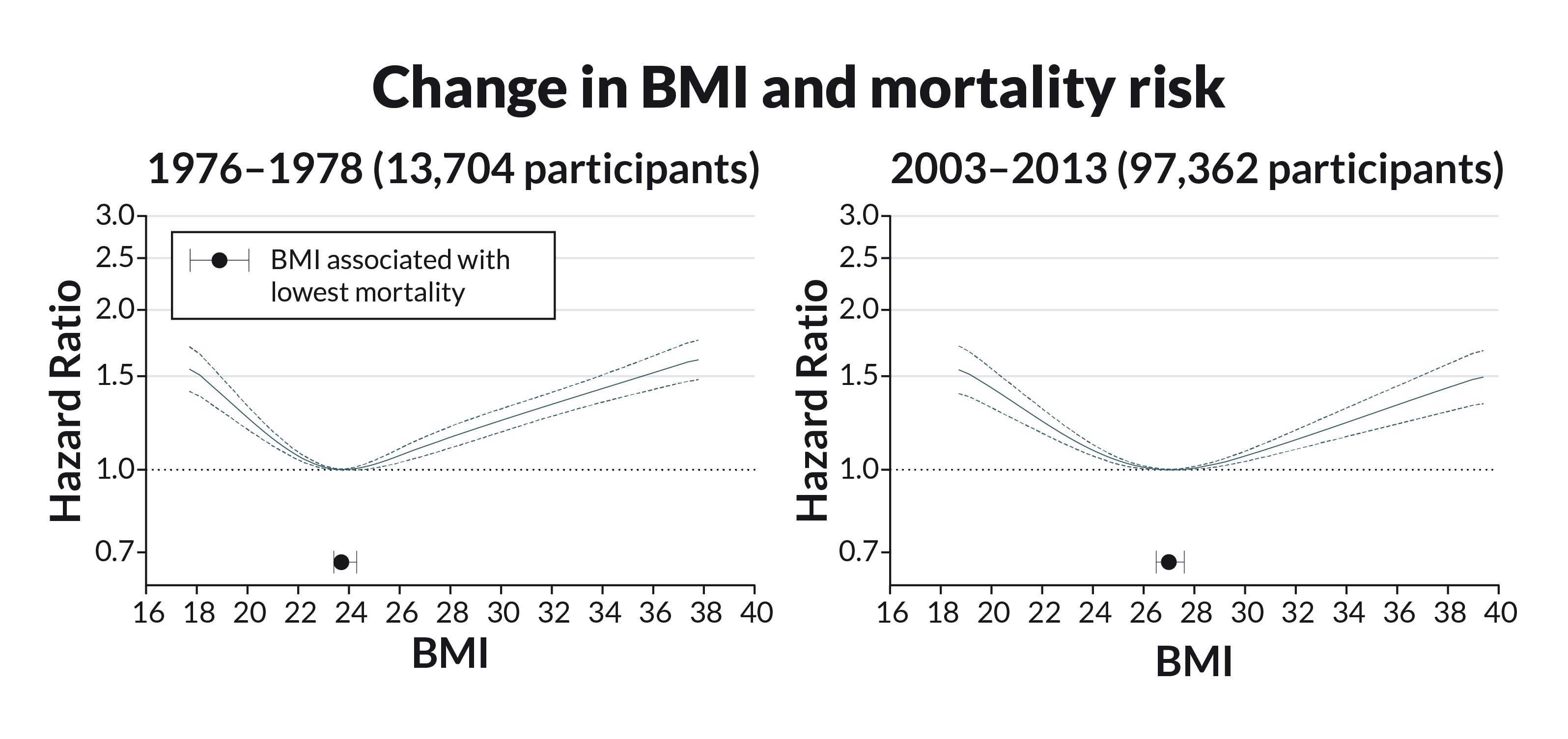Healthiest weight just might be ‘overweight’
Long-term study in Denmark suggests that optimum body mass index is on the rise

FAT CHANCE The body mass index, or BMI, associated with lowest risk of death now falls within the “overweight” category, according to an almost four-decade study of more than 100,000 adults in Denmark.
Burlingham/Shutterstock
Packing on a few pounds may not be such a bad thing.
As a group, overweight people are living the longest nowadays, suggests an almost four-decade study in Denmark published May 10 in JAMA. And obese people seem to be at no higher risk of dying than those of normal weight. The new analysis fuels ongoing debate about what’s a healthy body mass index — especially in light of rising obesity rates (SN: 5/14/16, p. 5), improved heart health treatments and other factors influencing health and longevity.
“This is a very carefully done study,” says Rexford Ahima, a physician who studies endocrine disorders at the University of Pennsylvania School of Medicine. The findings strengthen the notion that “BMI as a number alone may not be sufficient to predict health and risk of death. It has to be taken within context.” Ahima was not involved in the research but has analyzed previous studies urging a rethink of how BMI influences mortality.
Researchers screen for obesity by calculating BMI — a popular but fairly crude measurement of body fat reached by dividing a person’s weight in kilograms by the square of height in meters. People with BMIs between 18.5 and 24.9 are considered normal. A BMI between 25 and 29.9 is “overweight”; 30 and above is “obese.”
Many studies suggest that obese individuals face a higher risk of heart disease, stroke and other ills. But some analyses have found that heavier folks may not in fact be in such dire straits. In one study of type 2 diabetes patients, those with normal weight when diagnosed were more likely to die than those who were overweight or obese (SN: 9/8/12, p. 13). And a 2013 meta-analysis of 97 studies found that being overweight was associated with lower risk of death than having a normal BMI — a surprising finding that echoed a 2005 study by the same researchers.
In this new analysis, clinical biochemist Børge Nordestgaard of Copenhagen University Hospital and his team studied more than 100,000 adults. The three groups of white Danes, recruited about 15 years apart, reflected the general population in Copenhagen.
From 1976 to 2013, BMI associated with lowest risk of death increased from 23.7 to 27. That falls squarely in the overweight category. What’s more, obese individuals had the same mortality risk as people in the normal range, the analysis found. That trend held even when researchers took into account potentially confounding factors including age, sex, smoking and a history of cardiovascular disease or cancer.
Article continues below graphs
Healthier heavy
A new study of more than 100,000 adults from Copenhagen shows that, since the 1970s, the healthiest BMI has shifted from 23.7 to 27. The U-shaped curves track the association of BMI levels and mortality.

While some might misinterpret the study to mean “you can eat as much as you like,” this is not what the findings suggest, Nordestgaard says. Rather, the results indicate that people who are moderately overweight might not need to worry as much as they had in the past. That might be because better treatments are now available for high blood pressure, high cholesterol and other risk factors for heart disease, Nordestgaard speculates. “So maybe you can be overweight if you have [these conditions] treated.” But the study was not designed to address whether improved heart health care actually caused “healthy” BMI values to creep up over time.
It’s also unclear whether the results apply to other ethnic groups. A substantial fraction of Asians, for instance, develop type 2 diabetes and heart disease despite having BMIs lower than the existing cutoff point for being overweight.
The findings underscore the idea that a person’s BMI does not tell the whole story. While this measure is good for comparing populations, it is not as useful for evaluating individuals and their risk for disease and death, Ahima says. Interpreting an individual’s BMI depends on many other factors, including “whether you are man or woman, how much muscle you have, how physically fit you are and what diseases you have.”







